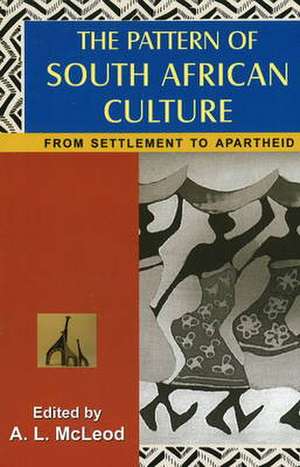Pattern of South African Culture
Editat de A.L. McLeoden Limba Engleză Hardback – 17 aug 2009
Preț: 189.57 lei
Preț vechi: 217.84 lei
-13% Nou
Puncte Express: 284
Preț estimativ în valută:
36.28€ • 37.74$ • 29.95£
36.28€ • 37.74$ • 29.95£
Carte disponibilă
Livrare economică 24 martie-07 aprilie
Preluare comenzi: 021 569.72.76
Specificații
ISBN-13: 9788120746336
ISBN-10: 8120746333
Pagini: 361
Dimensiuni: 144 x 214 x 30 mm
Greutate: 0.68 kg
Editura: Sterling Publishing
ISBN-10: 8120746333
Pagini: 361
Dimensiuni: 144 x 214 x 30 mm
Greutate: 0.68 kg
Editura: Sterling Publishing











